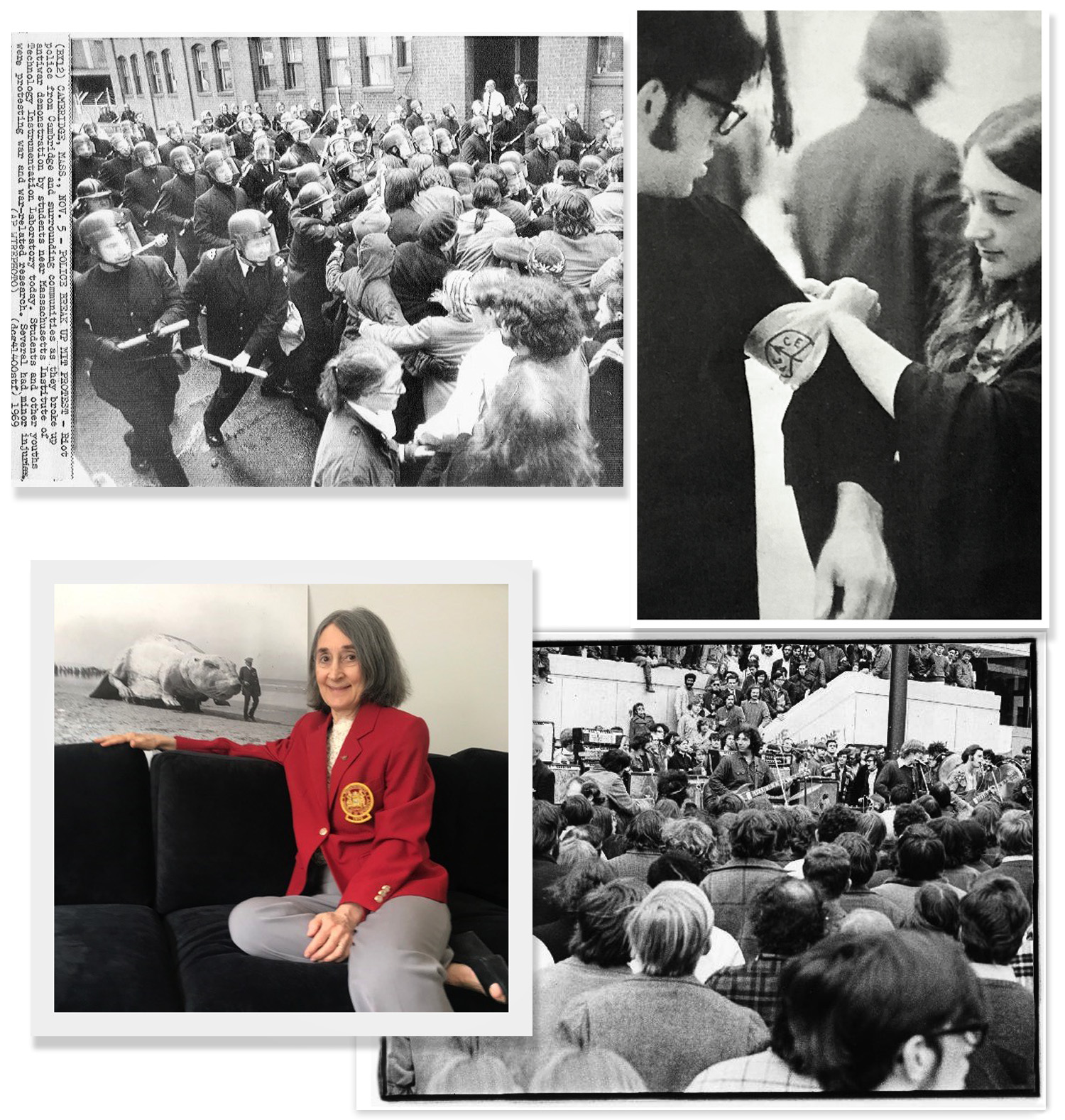A letter to the Class of 2020
Dear Class of 2020,
You have graduated—or should I say tumbled—into a world torn apart by a virus. Your final semester evaporated into the internet. In place of hacks and hugs, you had Zoom and Facebook video chats. Instead of face-to-face tutorials, you had Zoom and Google meetups. Rather than hours in the lab with UROP mentors, you had conversations via Slack and email. And instead of triumphantly striding down Killian Court in your caps and gowns to the applause of your families and friends, by the time you read this, you will have seen your names scroll across computer screens in a virtual commencement.
You have the deep sympathies of my class, the Class of 1970. For many of us, much of our time at MIT was disrupted by the tumult in society: Vietnam War protests, civil rights upheavals, the assassinations of both Martin Luther King Jr. and Robert Kennedy. The first semester of our senior year was upended by protests at MIT, following building takeovers and bloody police busts at Columbia University and then Harvard. The first Selective Service draft lottery was introduced in December of our senior year, creating anxieties for the roughly half of our class with low draft numbers, who suddenly found they might not have smooth sailing into jobs after graduation.
Our final semester, too, was thrown off kilter when the National Guard shot and killed student protesters at Kent State University on May 4. Millions of students went on strike, shutting down classes at high schools and colleges across the country. Some universities canceled their graduation ceremonies. MIT made classes optional for the rest of the semester, which became optional Pass/No Record, and many students left campus early.

Although we had commencement, the speech by MIT’s president was replaced by two minutes of silence. Only 60% of our class even came. Many of those who did attend wore armbands with peace symbols. Graduates who had entered MIT to pursue engineering and science careers cast around for alternatives so they wouldn’t have to enter the military-industrial complex supporting the war. And the economy we graduated into was none too healthy: a mild recession, followed by a worse recession and more than a decade of low growth and sharply higher inflation.
My classmates and I find it ironic that our 50th reunion, when we would have donned cardinal-red jackets and led the commencement procession into Killian Court, was also doomed. We tried to be creative in staging virtual commencement activities. We set up a Flickr gallery of classmates in their jackets and other red regalia. (I feel happy every time I look at it.) We created a coronavirus survey that more than 235 classmates took, and as I write this, we’re making plans to present the results at our virtual reunion at the end of May. Alan Chapman, one of our class musicians, is slated to perform cabaret with his family over the internet to entertain us. No, it won’t be the same as meeting in person after 50 years, but it will hold us until there is a vaccine and we can reunite face to face.
“We learned to be flexible, to go with the flow. Certainly, mourn what you have lost, but then figure out what you can do to make the world a better place.”
One lesson for us—and for you—from our cannibalized final semester is that we survived. We stayed in touch with our close friends. And we learned to be flexible, to go with the flow. Certainly, mourn what you have lost, but then figure out what you can do to make the world a better place.
Paging through our 50th-reunion book—the digital version, since our printer was deemed a nonessential business—makes it clear that most of my classmates eventually found their way. Some started in one field and moved to another: from software to the ministry, from tech to outdoor landscaping. Some traveled the world for a year or two, signing up for the Peace Corps or other service organizations. I recall feeling the need in my early 20s to move quickly, not to waste a moment. Looking back, I know there was more time than I thought.
Now, you and we are joined together in a very different historic moment. Observe it. Learn from it. Try to help the world. Being useful feels good. When we recover, appreciate the pleasures in life that we used to take for granted: friends, families, work, and celebrations like graduation ceremonies and reunions. And move ahead with your lives. You have lost something, but you are MIT graduates, and you will be fine.
Stay safe. And stay in touch with each other and the MIT community. Good luck!
Keep Reading
Most Popular
Large language models can do jaw-dropping things. But nobody knows exactly why.
And that's a problem. Figuring it out is one of the biggest scientific puzzles of our time and a crucial step towards controlling more powerful future models.
The problem with plug-in hybrids? Their drivers.
Plug-in hybrids are often sold as a transition to EVs, but new data from Europe shows we’re still underestimating the emissions they produce.
Google DeepMind’s new generative model makes Super Mario–like games from scratch
Genie learns how to control games by watching hours and hours of video. It could help train next-gen robots too.
How scientists traced a mysterious covid case back to six toilets
When wastewater surveillance turns into a hunt for a single infected individual, the ethics get tricky.
Stay connected
Get the latest updates from
MIT Technology Review
Discover special offers, top stories, upcoming events, and more.